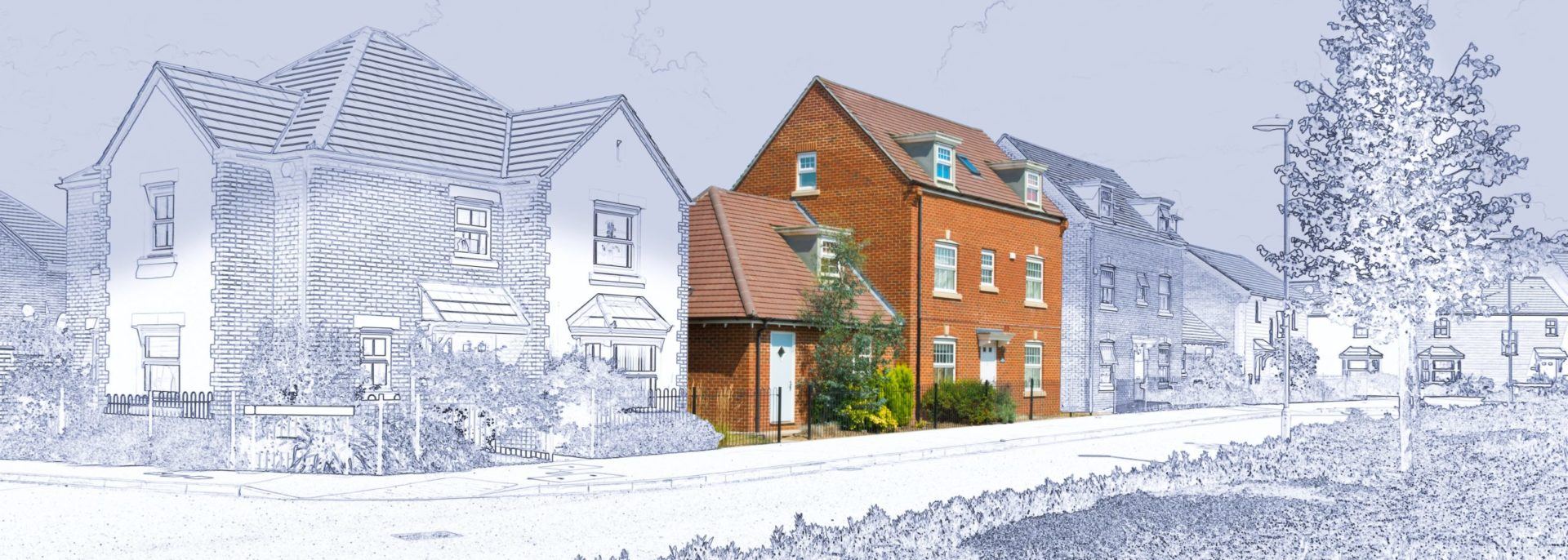An Introduction
When it comes to taking out a Mortgage and making the right choice, taking proper advice from an experienced Broker Firm that you can trust, and one that will work on your behalf, is essential. Selecting the correct Mortgage is a big commitment. Whether you are buying your first home, moving to a new house, becoming a buy-to-let landlord, or if you are looking to get a better deal on your existing mortgage, Chartwell can help and guide you through that journey.
What is a Mortgage?
A mortgage is a loan that you use to buy a property or plot of land. When you buy a property, you will be required to put down a deposit from your own sources; the rest will be funded by a mortgage from a bank or building society. The repayment term of the mortgage is made by monthly instalments over a set number of years.
What is the Risk?
A mortgage is a loan secured against your home. Your home may be repossessed if you do not keep up repayments on your mortgage, or any other debt secured on it. If you get into arrears, or struggle to keep up with your monthly repayments, you should seek advice as soon as possible. Chartwell advisers may be able to find you a mortgage that is more affordable.
How much can I borrow?
Establishing how much you can borrow and budgeting correctly are very important, and form a big part of the recommendation we will make to you. This will ensure that you do not overcommit, and that the mortgage we recommend will be affordable now and remain affordable in the future.
The amount you can borrow is calculated on the basis of a number of factors; your income, outgoings, and your credit history. All Mortgage providers will take these into account when assessing your affordability and borrowing limits.
Mortgage Repayment Options
Capital & Interest – Repayment Mortgages
Your mortgage is made up of the capital, the amount you’ve borrowed, and the interest charged on the loan. With a Repayment mortgage, you pay both the capital and the interest each month over the term of the mortgage. In the early years, most of your payments go to paying off the interest, with a smaller part reducing the capital. As you get nearer to the end of the mortgage term, it switches so that you’re paying more off the capital each month. As long as you make all of your monthly payments on time, a Repayment will guarantee your mortgage to be repaid in full at the end of its term.
Interest-only
As the name suggests, with an Interest-only mortgage, you just pay the interest every month. The repayments on an Interest-only mortgage are lower compared to those on a Repayment mortgage. However, you’ll have to pay off the capital eventually, so it’s important to have a repayment plan in place to repay the capital. The number of lenders offering Interest-only mortgages has reduced over the last few years. This is due to concerns that many of those who have them have no repayment plan in place, and could be left unable to pay back the capital at the end of the term.
Part Repayment/ Part Interest-only
It is possible, in some instances, to have a combination of a Repayment and Interest-only Mortgage, and Chartwell can advise you on suitability.
Mortgage product types
There are many different Mortgage products available, whether you’re a First Time Buyer, Home Mover, Buy to Let or looking for a better deal by remortgaging. Chartwell’s team of highly-skilled Advisers will explain the various products that are available, and recommend the most suitable one to fit your circumstances. Whilst all Mortgage Lenders will have their own Standard Variable Rate, here is a summary of some of the most popular product types
Fixed-rate mortgage
The interest rate remains the same throughout the period of the deal – typically one to five years. If you opt for a Fixed-rate, you’ll have the security of knowing exactly how much your mortgage will cost you for a set period of time.
Tracker mortgage
The interest rate on a Tracker mortgage is linked to the Bank of England base rate. So if the base rate changes, your mortgage rate will change. If the base rate was 0.50%, and you took a Tracker mortgage with a rate that is 2% above the base rate, you’d pay an interest rate of 2.50% . If the Bank of England put the base rate up to 1%, your mortgage rate would increase to 3.00%.
As with Fixed-rate mortgages, Trackers are available over different terms – most commonly two or five years.
Discount mortgage
Trackers aren’t the only type of variable mortgage. Discounts are another. However, unlike Trackers, the interest rate isn’t linked to the Bank of England base rate. Instead, it’s linked to the lender’s Standard Variable rate (SVR). This is a significant difference, because lenders can change their SVR even if there has been no change in the base rate.
Discount mortgages are available over different terms, typically one to five years.
